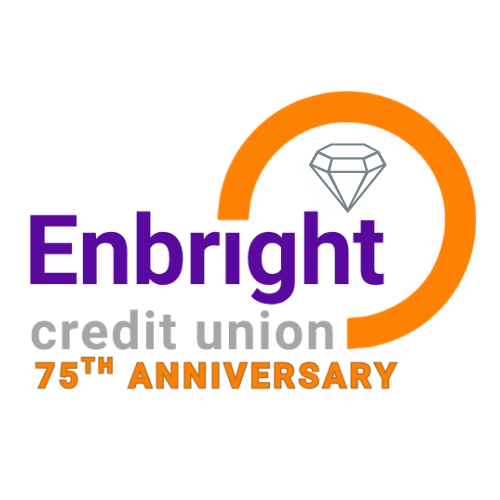Planning a Down Payment for Your Home
Ever scroll through online home listings until your eyes are blurry, wondering, “How much house can I afford?” Homebuying can be a formidable process, especially for new buyers. But it doesn’t have to be. Grab your blue light glasses, and let’s dig into what it takes to plan a down payment for your home.
Answering the question of how to save for a house starts with figuring out how much you’ll need to save for the down payment, which is the amount of money you pay upfront toward purchasing your home. The down payment typically ranges from 3% to 20% of the purchase price.
Read on to learn what goes into saving for a home, including how the down payment affects your monthly mortgage and how the down payment impacts how much home you can afford overall. You’ll also learn creative ways to save money for a down payment, and how your local credit union can help you with financial education and favorable home-buying programs for credit union mortgages.
Take the Guesswork Out of Your Down Payment
Not knowing how much you’ll need to put down on a home can be a major stress factor when you just want to enjoy the excitement of buying a home. Take the guesswork out of the process with online calculators, such as this one from Freddie Mac, to figure out your potential monthly payment by changing up the variables that impact expenses. Such variables include:
- Annual income. How much money you make in a year will impact your ability to produce the upfront cash needed for a down payment.
Monthly debts. Other monthly payments, such as home utilities, school fees, and other miscellaneous expenses, will impact how much you can afford to pay toward your mortgage each month. - Term length. The longer the term of your mortgage loan (30 years is most common), the more payments you will need to make over time and the more interest you will pay.
- Interest rates. Interest rates vary depending on various factors — including the down payment amount. Typically, the more money you put down, the better interest rate you can receive from your mortgage lender.
- Down payment amount. The down payment amount will affect your monthly payment. A larger down payment translates into less money owed on the mortgage.
How Mortgage Type Impacts Down Payment
How much down payment money you need to accumulate as you save for a home may depend on what type of mortgage you choose. Here are common types of home mortgages and their typical minimum down payment percentages:
- Conventional vs. jumbo mortgages. Conventional mortgage loans come from banks, credit unions, or alternative lenders and typically require a down payment of at least 3%. For more expensive properties, Jumbo mortgages require a more significant down payment, commonly at least 10% or as much as 30% of the home’s value.
- Government-backed mortgages. Government-backed mortgages are available through three government agencies that help home buyers secure loans and offer certain benefits. These loans can help borrowers with fair or poor credit who cannot provide a sizable down payment.
- Federal Housing Administration (FHA) – offers a 3.5% minimum down payment
- U.S. Department of Agriculture (USDA) – offers zero-down loans
- U.S. Department of Veterans Affairs (VA) – offers zero-down loans
For the majority of home buyers who deposit less than 20% of a home’s value as a down payment, it’s important to know about private mortgage insurance.
How Down Payment Affects Private Mortgage Insurance
Conventional wisdom on saving for a home is to accumulate enough to make at least a 20% down payment. In that case, those who plan on buying a $500,000 house would need to save $100,000 for a down payment.
Sure, putting down one-fifth of the cost of your home will reduce your monthly payments and help you get a better interest rate on a mortgage. However, while a 20% or higher down payment may be ideal, saving that much can be difficult. In fact, the average home buyer provides a down payment of around 6% to 7% of the home’s value.
When a homebuyer has a conventional loan and puts down less than 20% of a home’s value as a down payment, the lender will generally require private mortgage insurance (PMI). PMI protects the lender if you stop making payments on your loan. Typically, the homeowner must continue to pay PMI until the home’s equity reaches 20% of the home’s value.
However, not all lenders require PMI, even with a down payment that is less than 20% of the home’s value. Credit union mortgages, for example, are known for their flexibility in working with members to suit individual needs. So, it’s worth checking with your local credit union to see your available mortgage options.
Ways to Save for a House
There is no magic bullet to saving for a house; as with anything, saving steadily over time is your best strategy. However, if you’d like to maximize the amount when you ask yourself, “How much home can I afford?”, you can tackle saving for a home in two ways:
Monthly savings approach. Figure out how much you can save monthly and then calculate how long you’ll take to collect a down payment.
Deadline approach. Figure out when you want to have the down payment, and then calculate how much you need to save every month to meet that goal.
The first option may take longer but allow you to live more comfortably, while the second option may require cutting a lot of spending to meet an aggressive timeframe.
Creative Ways to Save for a Down Payment
Whichever method you choose in saving for a home, you can take steps to speed up the process:
Decrease unnecessary spending. Cut back on things like entertainment, subscriptions, and eating out.
Go on a spending diet. Pick a specific period of time (we recommend at least a month) where you commit to intentionally spending only on essentials. Any money you would have spent on ‘extras’ can go toward your down payment.
Find secondary income streams. Whether it’s driving for a ride-sharing service in your spare time or selling your homemade mugs on a craft platform, there are myriad ways to bring in extra income with a side hustle.
Sell your stuff. Whether it’s grandma’s Christmas china that never gets used or that guitar you swore you’d learn how to play, take a look around you. It’s easy to sell unwanted items on social media or at your local thrift store.
Prioritize paying down debt. Doing so will help improve your credit score and increase your likelihood of getting a reasonable mortgage rate when it’s time to purchase.
Home-Buying Assistance Programs
Home-buyer programs from government agencies and financial institutions, like credit unions, offer various services to help fund your home purchase. Qualification for such programs varies but often depends on factors such as income level, credit score, expense, and intended use of the home. Here are some programs that may be available to you:
- Down payment assistance. Down payment assistance is money that covers a portion or the entire down payment for a home. It can come in the form of grants that do not need to be repaid, low- or no-interest loans, and matched savings programs.
- Closing cost assistance. Similar to down payment assistance, this form of aid covers the expenses associated with closing on a home.
- First-time home buyer programs. While some assistance programs apply to true first-time buyers, many state, federal, and other programs consider you a first-time buyer if you have not purchased a home in the last three years or are purchasing your first home as a divorcee. These programs offer flexible mortgage financings such as zero down payment, favorable interest rates, and no PMI.
Further Resources on Home Down Payments
If you’re looking for more information on planning a down payment for your home, plenty of resources are available online. Check out these helpful and often interactive sites:
- Consumer Financial Protection Bureau: Let’s you explore interest rates and how they might impact your payments.
MyCreditUnion.gov: Offers a variety of calculators to help you approximate everything from mortgage loans to savings estimates.
National Association of Realtors: The Downpayment Expectations Report provides a national perspective on stakeholder down payment expectations.
Enlist a Partner in Your Home-Buying Experience
Community-based credit unions often offer home-buying programs and can be an excellent resource for home-buying education and advice. Combined with leading rates on savings accounts and lower banking fees, they can be a great option for any home buyer.
Learning how to save for a house doesn’t need to be intimidating. Credit unions are here to help you understand what you need to know, find the right mortgage for you, and set you on the path to homeownership. Use our Credit Union Locator to find out about a credit union home loan near you.






